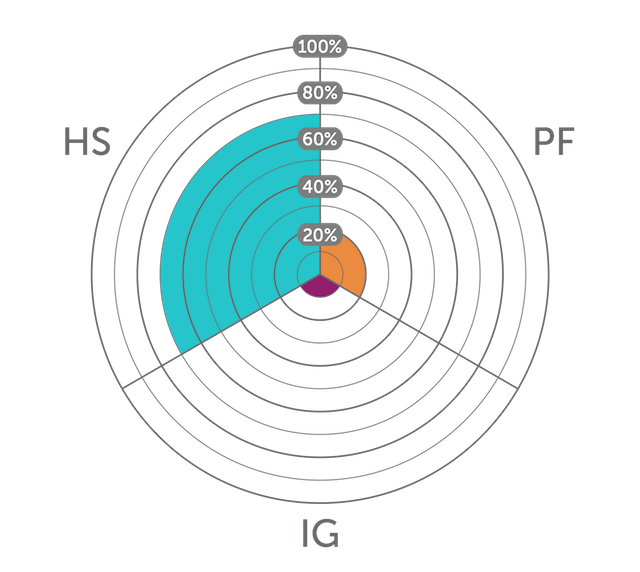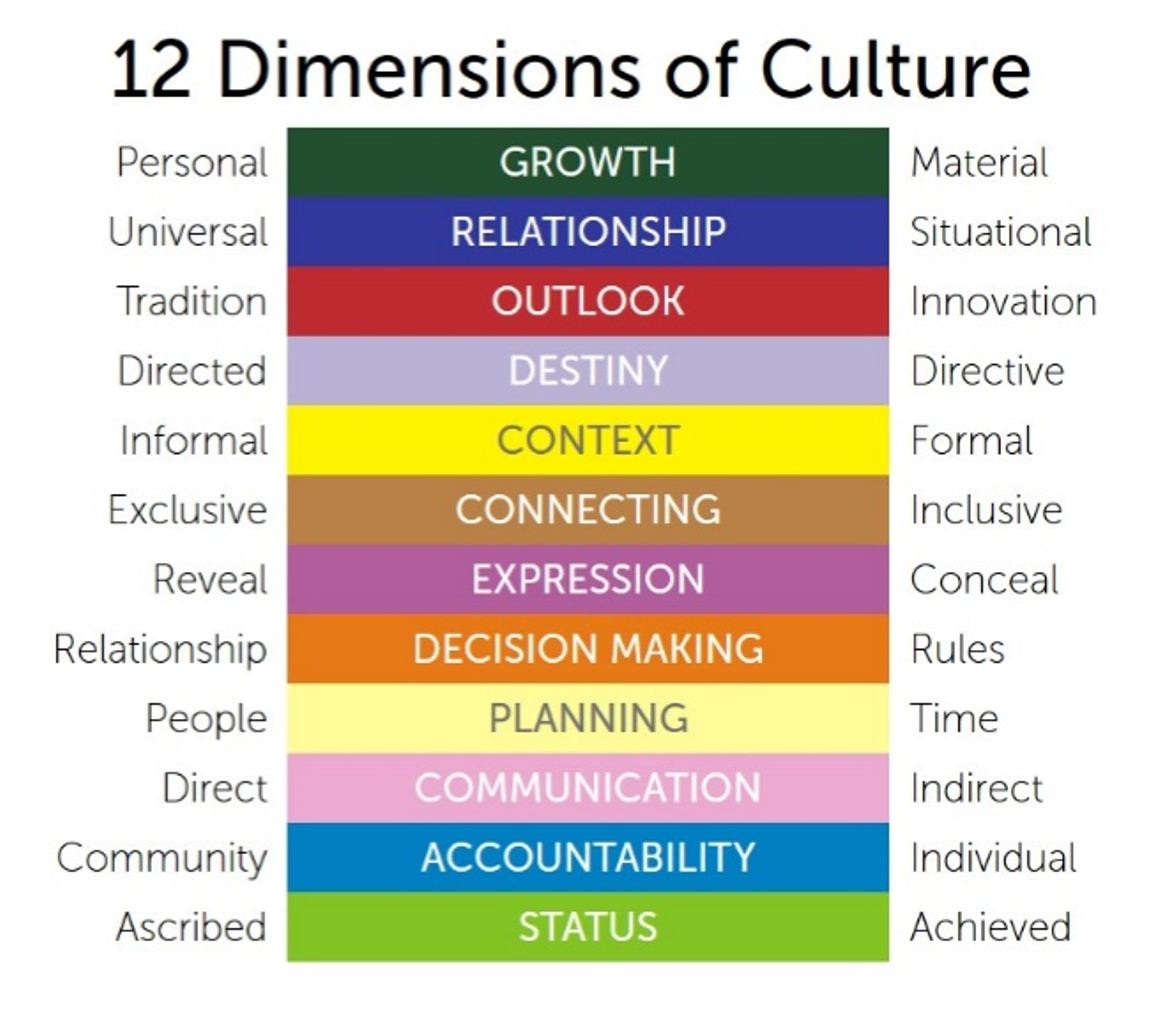Destiny has us covering the fourth dimension of culture today.
Destiny is about how much control you think you have over your life: whether you tend to change to fit your environment or try to change your environment to fit you.
People who tend to adapt to the way things are have a Directed destiny outlook. They feel their lives are "directed" by outside forces. Those who try to change their surroundings have a Directive destiny outlook, giving themselves "directives" to chart their course. Where we fall on this spectrum influences our style of leadership, our beliefs related to motivation, and the way we negotiate and compete in the market.
Directed Destiny
If you have a directed destiny orientation, you feel that your environment is in control of you. This could come through the government, family, religious beliefs or even chance. A directed destiny orientation can result in many different approaches to life, but in all of them, outside forces play a defining role in how your life turns out. People who come from directed destiny environments typically feel that their environment brings them stability, makes them feel safe, and creates clarity about their future - as they know exactly what they can and cannot pursue.
Directive Destiny
With a directive destiny orientation, you are in charge of your environment and you believe that you can control the way your future turns out. Mantras in directive destiny cultures are along the lines of: "If you believe in it and work hard, you can be good at anything." People from directive destiny environments typically say that their outlook means they are allowed to try, allowed to be themselves, and can do things that give them a sense of freedom.
Crucial Differences in Authority Delegation
In a directive destiny environment, delegation means that you give people authority and permission to make decisions. Meanwhile, in a directed destiny environment, you might be given a title, but the roles and responsibilities that initially come with the job description for that title are easily overruled by a higher authority. This can create conflict and misaligned expectations when people move between directed and directive destiny leadership orientations.
If you hire a directive destiny CEO, for example, he or she will expect not only the title of CEO, but also the authority that position commands. That includes the budgetary control and the benefit of the doubt necessary to pursue the goals they feel are right for their role. If that CEO then has to work under a directed destiny owner or board they could feel micromanaged, not trusted, and lacking the empowerment they need to thrive. Conversely, a directed destiny CEO in a directive environment could feel that their staff are insubordinate, rebellious and disrespectful.
One of the findings that came out of research for the book "First Break All the Rules" by Marcus Buckingham was that managers shouldn't try to put into people what isn't there in the first place. Buckingham says to leverage people's strengths and not focus on their weaknesses. Team members are not done a favor by making them spend extra time on things they're not good at. Allow them to contribute to the team in areas they're good in.
In a directive destiny environment managers need to encourage people to give feedback and tell what they need, so they can find their highest performing roles on a team.
But in a directed destiny environment, it may be quite common for employees to grind away in areas where they aren't naturally strong, as employees do not feel empowered to give feedback about what they're comfortable with. It's that much more important then for a manager to choose the most appropriate employee to give a task to. In a directed destiny environment, there's more responsibility on managers to study and know their employees well and make the best use of them.

Moving Between Directive and Directed Destiny Environments
Many fast growing emerging markets are directed destiny environments, but many of the CEOs, CFOs, and COOs organizations in these countries are hiring are strongly directive destiny oriented. This difference can create mismatched expectations between levels of management.
Directed destiny managers tend to work around and accommodate to norms. But at the helm of a team of creative, directive destiny staff they could face a power struggle if the staff aren't given appropriate amounts of autonomy and respect. On the other hand, hard-charging directive destiny oriented managers will have to slow down and develop strategies for empowering directed destiny oriented staff to take initiative, voice their opinions, and be critical thinkers.
From our substantial work with mixed teams of directive and directed destiny-oriented people, we have found that even the context of simple messages can be misunderstood, creating a hidden break in communication. In a directed destiny culture the words, "We guarantee that you will be in charge, run the budget, and make the strategy operational" carry the unspoken context, "You still have to get my blessing on these things." But people from a directive destiny culture rarely read between the lines to pick up on this message, instead interpreting it as "You don't need to get my approval, just get me results."
Being aware of the possibility for differences in this area early gives you a great advantage in being able to mitigate conflict. This can make a big difference in leadership and organizational development.
Check out this video clip of a conversation about an arranged marriage from the film Outsourced, and look for some of the dynamics of Destiny:
* Originally published on KnowledgeWorkx
- Log in to post comments






